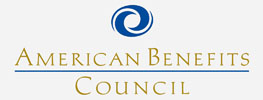
Subcommittee on Financial Management, the Budget and
International Security Hearing
on FASB Stock Option Expensing Proposals
April 20, 2004
Courtesy of the Benefits Group of Davis and Harman
On April 20, a hearing was held in the Senate Governmental Affairs Subcommittee on Financial Management, the Budget, and International Security to consider the importance of FASB as an independent entity and to examine the economic and financial reporting consequences of expensing employee stock options. The Subcommittee received testimony from Senator Barbara Boxer (D-CA), Senator Mike Enzi (R-WY), Robert Herz (Chairman, FASB), Paul Volcker (Chairman, International Accounting Standards Committee Foundation), Jack Ciesielski (President, R. G. Associates), Damon Silvers (Associate General Counsel, AFL-CIO), Donald Delves (The Delves Group), Mark Heesen (President, Venture Capital Association), and James Glassman (American Enterprise Institute).
Members' Opening Statements
The Subcommittee members attending the hearing announced their views on the FASB proposal before hearing from the witnesses.
In opening the hearing, Subcommittee Chairman Fitzgerald (R-IL) said that while he believes the FASB proposal could be strengthened, he supports the rule. He further stated that he opposes legislation that has been introduced to overturn the FASB proposal because such bills essentially substitute political views for the views of accounting experts. He also observed that a lot of companies are lobbying in support of legislation to overturn FASB, and Subcommittee staff asked a number of them to testify. However, they all refused, which he considered to be an indication that they were not comfortable justifying their position in a public forum.
Senator Akaka (D-HI) stated that the problems with Enron demonstrate the danger of not having independent accounting standards. He added that interference by Congress in the FASB process would set a dangerous and detrimental precedent.
Senator Bennett (R-UT) was a little less clear about his position. The Senator stated that he favors stock options expensing, believes that Congress should not be making accounting decisions, and FASB should be independent. However, he also firmly believes that the proposal released by FASB could do great harm, and he particularly is concerned that FASB did not take into consideration the concerns raised by many companies when it developed its proposal.
Senator Levin (D-MI) called stock options "stealth executive pay," and objected to the fact that such options are deductible for tax purposes but companies are not required to take them into account for accounting purposes. He agreed with his Subcommittee colleagues that Congress should not impose its judgment on accounting standards.
Senator Lieberman (D-CT) expressed concern that rank-and-file workers will lose the opportunity to receive stock options if the FASB proposal is finalized. He did not state his view regarding an appropriate response from Congress.
Testimony
Panel I - Senator Enzi and Senator Boxer
Senators Enzi and Boxer urged the adoption of legislation they introduced that would require companies to expense stock options granted to the top five executives (S. 1890). The bill would exempt small businesses from this requirement until 3 years after an initial public offering. In addition, S. 1890 calls for a joint study by the Departments of Commerce and Labor on the economic impact of mandatory expensing.
Senator Enzi is particularly concerned about the effect that FASB's proposal will have on small businesses and accused the organization of ignoring small business concerns. He announced that a hearing will be held next week in the Small Business and Entrepreneurship Committee to give small businesses the opportunity to discuss the effect of FASB's proposal on them.
While appreciating the need for an independent accounting board, Senator Boxer argued that it is not FASB's job to determine policy - it is Congress' job. She said that Congress has duty to exercise its judgment when it comes to economic matters, and she believes that FASB's mandatory expensing proposal will have adverse economic consequences.
Panel II - Robert Herz and Paul Volcker
Mr. Herz described the process leading up to the issuance of the FASB proposal, noting that 38 public board meetings occurred, and over 300 comments letters were reviewed by the board members. He also described the procedure going forward which includes roundtable meetings with users, auditors, and preparers of financial reports as well as a meeting of their Small Business Advisory Committee. The Board plans to complete its deliberations and issue a final standard in the fourth quarter of 2004.
Mr. Volcker discussed the importance of allowing professional standard setters to use their best judgment to determine appropriate accounting standards. He stressed the need for commonality of accounting standards in our globalized economy and said that expensing of employee stock options will likely be accepted and enforced in the European Union and many other countries next year.
Panel II - Jack Ciesielski, Damon Silvers, Donald Delves, Mark Heesen, and James Glassman
Mr. Ciesielski, Mr. Silvers, and Mr. Delves supported the FASB proposal, but focused their testimony mostly on the process. All believe that FASB's ability to develop impartial accounting standards would be impeded if legislative intervention becomes the procedure for disagreeing with their pronouncements. Mr. Silvers raised concerns about stock options as a form of compensation, and therefore strongly objected to such options receiving preferential accounting treatment over what he believes to be better forms of compensation, such as wages and health and pension benefits.
Mr. Heesen and Mr. Glassman argued that Congress has a responsibility to act in the matter of FASB's options expensing proposal. Mr. Heesen urged the enactment of S. 1890 which he believes would preserve broad-based employee stock option plans and address what he considers to be the serious implications of expensing for emerging growth companies. While Mr. Glassman did not endorse any specific bill, he urged modification (or withdrawal) of the FASB proposal.
There was an extensive question and answer period, but the session did not elicit any information beyond the members opening statements and the witnesses' statements.